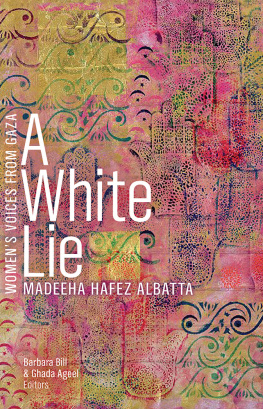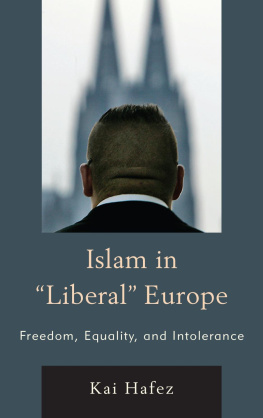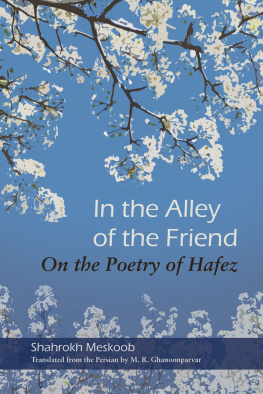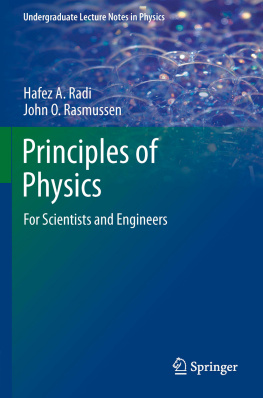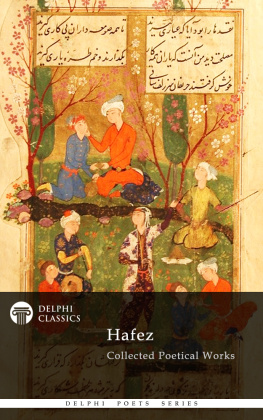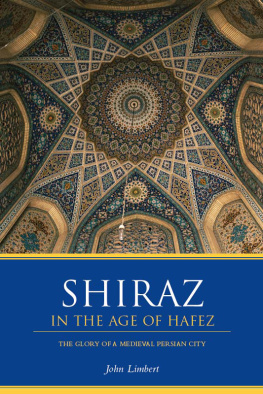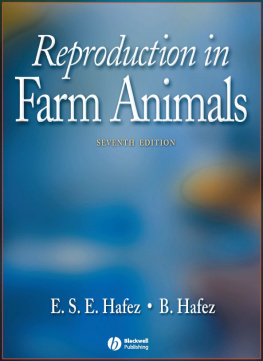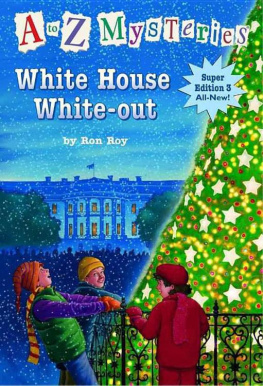Madeeha Hafez Albatta - A White Lie
Here you can read online Madeeha Hafez Albatta - A White Lie full text of the book (entire story) in english for free. Download pdf and epub, get meaning, cover and reviews about this ebook. publisher: The University of Alberta Press, genre: Politics. Description of the work, (preface) as well as reviews are available. Best literature library LitArk.com created for fans of good reading and offers a wide selection of genres:
Romance novel
Science fiction
Adventure
Detective
Science
History
Home and family
Prose
Art
Politics
Computer
Non-fiction
Religion
Business
Children
Humor
Choose a favorite category and find really read worthwhile books. Enjoy immersion in the world of imagination, feel the emotions of the characters or learn something new for yourself, make an fascinating discovery.
- Book:A White Lie
- Author:
- Publisher:The University of Alberta Press
- Genre:
- Rating:4 / 5
- Favourites:Add to favourites
- Your mark:
- 80
- 1
- 2
- 3
- 4
- 5
A White Lie: summary, description and annotation
We offer to read an annotation, description, summary or preface (depends on what the author of the book "A White Lie" wrote himself). If you haven't found the necessary information about the book — write in the comments, we will try to find it.
A White Lie — read online for free the complete book (whole text) full work
Below is the text of the book, divided by pages. System saving the place of the last page read, allows you to conveniently read the book "A White Lie" online for free, without having to search again every time where you left off. Put a bookmark, and you can go to the page where you finished reading at any time.
Font size:
Interval:
Bookmark:
Published by
University of Alberta Press
116 Rutherford Library South
11204 89 Avenue NW
Edmonton, Alberta, Canada T6G 2J4
uap.ualberta.ca
Copyright 2020 Barbara Bill and Ghada Ageel
LIBRARY AND ARCHIVES CANADA CATALOGUING IN PUBLICATION
Title: A white lie / Madeeha Hafez Albatta ; Barbara Bill and Ghada Ageel, editors.
Names: Albatta, Madeeha Hafez, 19242011, author. | Bill, Barbara, 1956 editor. | Ageel, Ghada, 1970 editor.
Description: Series statement: Womens voices from Gaza series | Includes bibliographical references.
Identifiers: Canadiana (print) 20200305158 |
Canadiana (ebook) 2020030528X |
ISBN 9781772124927 (softcover) |
ISBN 9781772125160 (EPUB) |
ISBN 9781772125177 (Kindle) |
ISBN 9781772125184 (PDF)
Subjects: LCSH: Albatta, Madeeha Hafez, 19242011. | LCSH: Women, Palestinian ArabGaza StripGazaBiography. | LCSH: Palestinian ArabsGaza StripGazaBiography. | LCSH: Refugees, Palestinian ArabGaza StripGazaBiography. | LCSH: Women refugeesGaza StripGazaBiography. | LCSH: Gaza StripSocial conditions20th century. | LCGFT: Autobiographies.
Classification: LCC DS126.6.A43 A3 2020 | DDC 956.94/5694305092dc23
First edition, rst printing, 2020.
First electronic edition, 2020.
Digital conversion by Transforma Pvt. Ltd.
Copyediting and proofreading by Angela Pietrobon.
Maps by Wendy Johnson.
Cover design by Alan Brownoff.
Cover image: Laila Shawa, Hands of Fatima with Crescent Moon and Stars (detail), 2004. Acrylic and gold leaf on Wasli, hand made paper, 120 100 cm. Used by permission
All rights reserved. No part of this publication may be reproduced, stored in a retrieval system, or transmitted in any form or by any means (electronic, mechanical, photocopying, recording, or otherwise) without prior written consent. Contact University of Alberta Press for further details.
University of Alberta Press supports copyright. Copyright fuels creativity, encourages diverse voices, promotes free speech, and creates a vibrant culture. Thank you for buying an authorized edition of this book and for complying with the copyright laws by not reproducing, scanning, or distributing any part of it in any form without permission. You are supporting writers and allowing University of Alberta Press to continue to publish books for every reader.
University of Alberta Press gratefully acknowledges the support received for its publishing program from the Government of Canada, the Canada Council for the Arts, and the Government of Alberta through the Alberta Media Fund.

To those who struggle for justice
Contents
Preface
Introducing Womens Voices from Gaza
THIS BOOK IS THE FIRST VOLUME of a series on Womens Voices from Gaza. This series of seven stories recounts life in Palestine, prior to and after its destruction, narrated by women who lived through those experiences. The collected corpus of their accounts offers a detailed and vivid picture of places and people, of both the past and present, of a people. It traces Gazas history, a rich tapestry woven of many strands.
The oral history accounts recorded in this series complement a body of work asserting the centrality of the narrative of Palestinians in reclaiming and contextualizing Palestinian history. The research, through which these testimonies were located, solicited, documented, and gathered into a whole, aims to re-orient the story of Palestine by restoring it to its original narrator: the Palestinian people. In addition, the focus of this series is on Palestinians who lived in the Gaza Strip, whether prior to, or as a result of, the Nakba , the 1948 catastrophe that led to the collective dispossession of the Palestinian people.
While other works, such as that of anthropologist and historian Rosemary Sayigh, have aimed at narrating displacement as a defining experience of Palestinian people in modern times, this series describes life both before and after the Nakba as it was lived by the narrators: in different parts of Palestine, in Yaffa, Beit Affa, Beit Daras, Beit Hanoun, Khan Younis, Bureij, and Gaza, and in exile. More specifically, it provides a full account of life in different parts of historic Palestine, starting from pre- Nakba times, through the destruction of Palestines villages and towns and the dispossession of their inhabitants in 1948, to the Israeli invasion and occupation during the Swiss crisis in 1956, the war followed by military occupation in 1967, displacement and exile, and two intifadas , to a failed peace process leading to the current impasse. While the series brings to the forefront experiences of normal life before displacement, dispossession, exile, wars, and occupation, the accounts also brilliantly illuminate much of the small, everyday detail of lives in villages and towns. They recount rituals associated with agrarian cycles, wedding rites, rites accompanying birth and death, as well as aspirations, fears, and hopes. Readers are invited to reimagine Palestine and the lives of those sidelined by traditional history.
Unlike some approaches, where essentialized framing of oral histories collected from displaced and refugee women has allowed researchers to reinterpret the outcomes of their research, our narrators own and have determined their narratives. Consequently, these are presented in all their complexity, fertility, and normality. Through their deep collective memories, each individual woman transmitted her own narrative/history, embodying a chapter of Palestines neglected history. Following Edward Saids observation that, facts get their importance from what is made of them in interpretationfor interpretations depend very much on who the interpreter is, who he or she is addressing, what his or her purpose is, at what historical moment the interpretation takes place, our effort has been to seek out and foreground the narratives of Palestinian women with minimal interference. This has allowed the women unhindered ownership of their own story, with only minimal intervention or interpretation on our part. Our sole interference in each womans text was editing and positioning it so as to give it greater fluidity and allow it to read as a cohesive piece.
In contrast to works that have focused on women living in urban areas or on experiences of displacement, this series engages with women from the both urban and rural parts of the Gaza Strip, and with Indigenous women as well as refugees and returnees (women who had been exiled and were able to return to Gaza following the Oslo Accords). Although Gaza is small, it is densely populated, and small geographic variances may have significant impacts on how life is experienced. Life in rural parts of the Strip can be very different from urban life, and Indigenous vs. refugee backgrounds make for distinctly different life stories. Such considerations help move us toward a more fully comprehensive and representative account of life in this part of historic Palestine, both prior to and after 1948.
Unsurprisingly, many of the details of the stories recorded in this series overlap, although the women telling them are unlikely to have met each other. This universality of experience provides a multi-layered map in which human history becomes political history, allowing readers an opportunity to see into the heart of life as it was lived in these spaces from day to day. Individually and as a cumulative corpus, the stories offer a new contribution to the fields of both Palestinian oral history and womens studies.
The life stories collected and presented are those of women from distinct, differing backgrounds: a refugee from Beit Daras village living in the southern part of the Gaza Strip (Khadija Salama Ammar, Khan Younis Refugee Camp); a refugee from Beit Affa village living in the central Gaza Strip (Um Jaber Wishah, Bureij Refugee Camp); a refugee from Yaffa City living in the north of the Strip (Um Said Al-Bitar, Hay Al-Naser in Gaza city); a villager living in the north of the Gaza Strip (Um Baseem Al Kafarneh, the border town of Beit Hanoun); an Indigenous Christian resident of Gaza city (Hekmat Al Taweel); a returnee to the Gaza Strip, originally a resident of Gaza city who was displaced and became a refugee after the 1967 war (Sahbaa Al Barbari); and an Indigenous resident of the Gaza Strip living in Khan Younis city who subsequently moved to Gaza city (Madeeha Hafez Albatta).
Next pageFont size:
Interval:
Bookmark:
Similar books «A White Lie»
Look at similar books to A White Lie. We have selected literature similar in name and meaning in the hope of providing readers with more options to find new, interesting, not yet read works.
Discussion, reviews of the book A White Lie and just readers' own opinions. Leave your comments, write what you think about the work, its meaning or the main characters. Specify what exactly you liked and what you didn't like, and why you think so.

